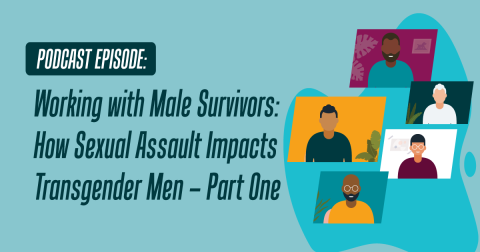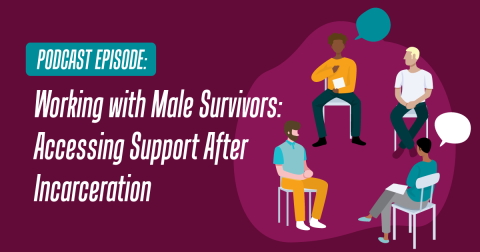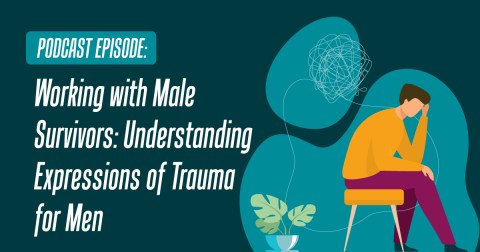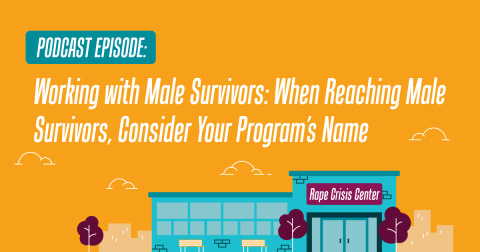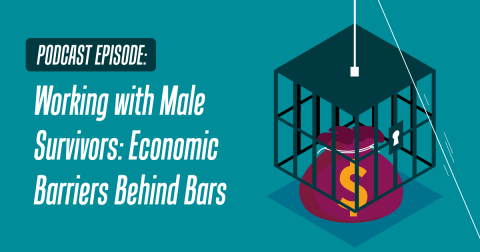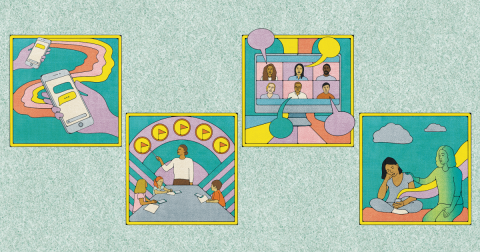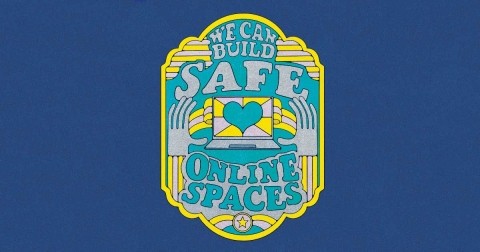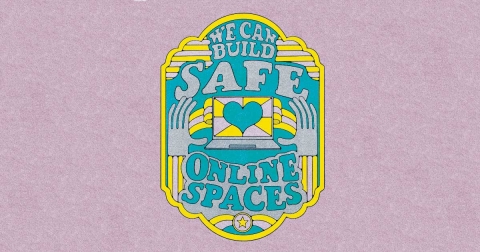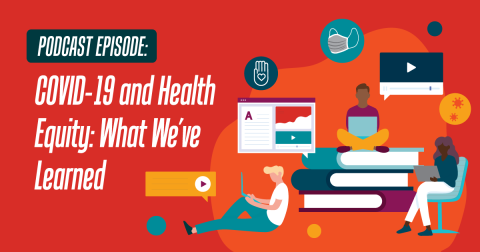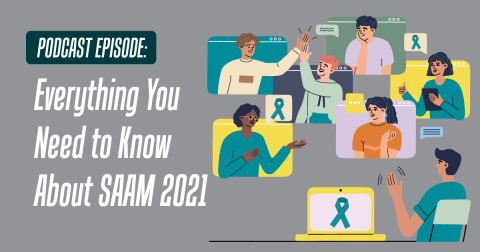The NSVRC collects information and resources to assist those working to prevent sexual violence and to improve resources, outreach and response strategies. This page lists resources on this website that have been developed by NSVRC staff.
- April 21, 2021
- Chad Sniffen
michael munson joins NSVRC’s Louie Marven to talk about working with transgender men and transmasculine survivors. In this first part of a two-part conversation, michael talks about foundational concepts of gender relevant to working with trans men and transmasculine folks, and common reactions to sexual assault that may be especially relevant for advocates to understand in working with trans men and transmaculine survivors. michael is the executive director of FORGE. Participants michael munson, executive director, FORGE Louie Marven, NSVRC Training Specialist This resource is part of
- April 19, 2021
- Chad Sniffen
Tonjie Reese, who was the Senior Program Officer at Just Detention International at the time of this recording, talks with Louie Marven from NSVRC about working with male survivors who are formerly incarcerated. JDI supports survivors who are incarcerated and advocates who work with survivors who are incarcerated, and there are lots of opportunities for advocates to support survivors as they reenter the community. Participants Louie Marven, Training Specialist, NSVRC Tonjie Reese, Senior Program Officer, Just Detention International This resource is part of Working with Male Survivors of
- April 08, 2021
- Chad Sniffen
Kenton Kirby joins NSVRC’s Louie Marven to talk about understanding expressions of trauma for men. Kenton is the Director of Practice at the Center for Court Innovation, and in this podcast, he addresses how advocates at sexual assault centers can learn from his work to create safety for a young man who has been harmed to talk about that harm, some of the common ways men express trauma, and more. Participants Kenton Kirby, Director of Practice, Center for Court Innovation Louie Marven, NSVRC Training Specialist This resource is part of Working with Male Survivors of Sexual Violence. This
- April 07, 2021
- Chad Sniffen
Geoff Landers-Nolan joins NSVRC’s Louie Marven to talk about reaching male survivors, and especially considering a sexual assault program’s name in being accessible to male survivors. Geoff is a Sexual Assault Counselor/Therapist at Centre Safe in State College, Pennsylvania. Participants Geoff Landers-Nolan, Sexual Assault Counselor/Therapist, Centre Safe in State College, Pennsylvania Louie Marven, NSVRC Training Specialist This resource is part of Working with Male Survivors of Sexual Violence. This episode was supported by Grant No. 2016-TA-AX-K035 awarded by the Office on Violence
- April 07, 2021
- Chad Sniffen
Tonjie Reese, who was the Senior Program Officer at Just Detention International at the time of this recording, talks with Louie Marven from NSVRC about working with male survivors who are incarcerated. Tonjie highlights economic barriers and racial justice issues, and shares tips for advocates on hotline services, reaching survivors through inmate education efforts, and more. Participants Louie Marven, Training Specialist, NSVRC Tonjie Reese, Senior Program Officer, Just Detention International This resource is part of Working with Male Survivors of Sexual Violence. This episode was
- April 05, 2021
- Emily Bigger
Learn how to practice digital consent, intervene when we see harmful content or behaviors, and ensure that online spaces — whether they be workspaces, classrooms, social media platforms, or otherwise — are respectful and safe.
- April 01, 2021
- Emily Bigger
We Can Build Online Safe Spaces campaign poster for Sexual Assault Awareness Month 2021. For best graphic quality, download the PDF and then print it out.
- April 01, 2021
- Emily Bigger
We Can Build Online Safe Spaces campaign poster for Sexual Assault Awareness Month 2021. For best graphic quality, download the PDF and then print it out.
- March 22, 2021
- Chad Sniffen
In the final episode of our COVID-19 and Health Equity series, NSVRC’s Yolanda Edrington, Louie Marven, and Mo Lewis discuss what they learned during the series, what touched their hearts, and how their perspectives have shifted. Participants: Yolanda Edrington, NSVRC Director Louie Marven, NSVRC Training Specialist Mo Lewis, NSVRC Prevention Specialist
- March 17, 2021
- Chad Sniffen
April is Sexual Assault Awareness Month, and in this episode, we’re exploring this year’s campaign, We Can Build Safe Online Spaces. Listen as NSVRC’s Susan Sullivan explains why 2021 was the right year for this campaign, provides an overview of new resources that allow you to easily host an online SAAM event, and shares other ways you can get involved and make a difference during SAAM. Participants Susan Sullivan, NSVRC Prevention Campaign Specialist Megan Thomas, NSVRC Communications Specialist
Pagination
- Previous page
- Page 14
- Next page

